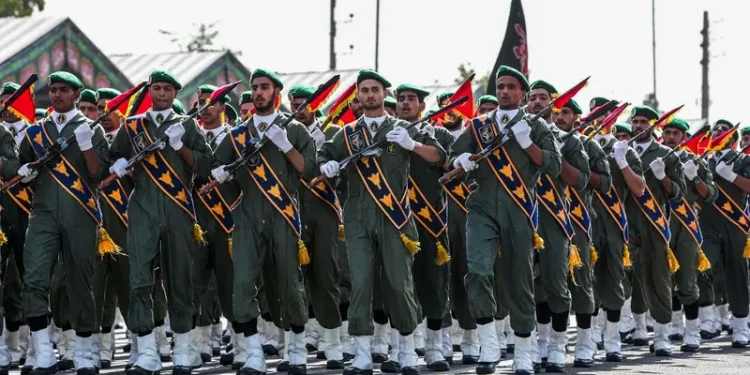Agencies-Gaza post||
As part of a resurrected nuclear deal, Israel appealed to the US not to remove Iran’s Revolutionary Guards from its lists of foreign terrorist organizations.
Prime Minister Naftali Bennett and Foreign Minister Yair Lapid claimed in a press statement that the Islamic Revolutionary Guard Corps “is a terrorist organization that has slaughtered hundreds of people, including Americans.”
They stated, “We refuse to think that the United States will rescind its status as a terrorist organization.”
The announcement comes after the US indicated on Wednesday that it and Iran were close to reaching an agreement on reviving the 2015 nuclear deal.
“We’re getting close to a deal, but we’re not quite there yet,” said State Department spokesman Ned Price. “We believe the remaining gaps can be filled.”
Tehran’s requests for the Revolutionary Guards to be delisted as a terrorist group, according to sources close to the discussions, were among the unresolved concerns.
Under then-President Donald Trump, the US labeled the Guards as a “foreign terrorist organization” in April 2019.
It comes a year after Trump abruptly exited the nuclear agreement, technically known as the Joint Comprehensive Plan of Action.
Iran was granted reprieve from sanctions in exchange for limits on its nuclear program under the JCPOA.
World powers saw it as the greatest means to prevent Iran from developing a nuclear weapon, which it has long denied.
However, the agreement began to crumble in 2018, when Trump withdrew from it before placing strong economic sanctions on Iran.
Tehran replied by abandoning its own agreements, including the enrichment of uranium.
Iran, the United Kingdom, China, France, Germany, and Russia have been holding direct discussions in Vienna to resurrect the accord for weeks, with the United States engaging indirectly.
Iran is considered a “existential threat” by Israel, and the two countries have been at odds since the 1979 Islamic Revolution ousted the Western-backed shah.
Iran is also a strong partner of Hezbollah, the Shiite movement in Lebanon that has fought Israel and is blamed by Israel for a series of anti-Israeli acts, including the 1992 bombing of Israel’s embassy in Argentina, which killed 29 people.
Iran also backs Palestinian Authority President Mahmoud Abbas, Syrian President Bashar al-Assad, and Huthi rebels fighting Yemen’s internationally recognized government.
In a joint statement, Bennett and Lapid said, “The struggle against terrorism is a global one, a shared mission of the entire world.”
AFP

















